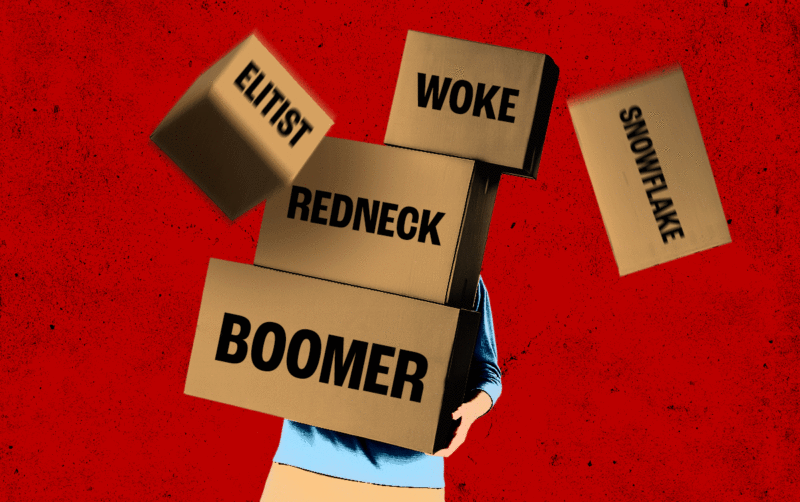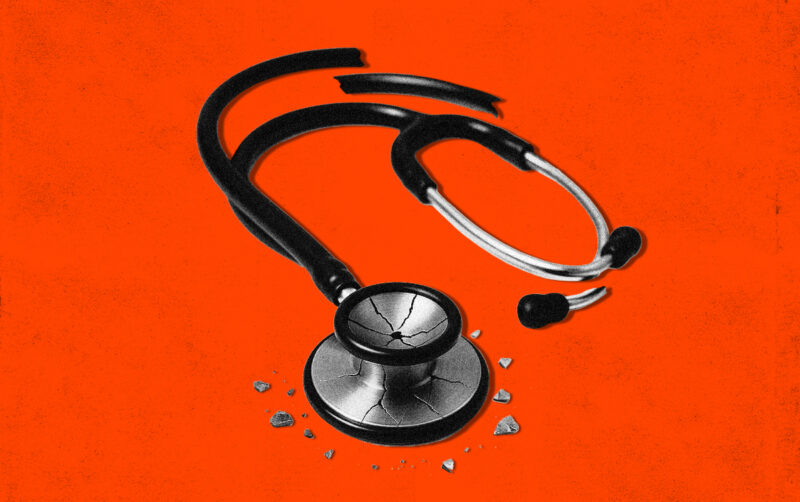Editorial
Why Don’t Americans Trust Experts Anymore?
Across nearly every aspect of American life—from health care to economics to journalism—people are turning away from accredited experts and relying more on peers, influencers, and personal instinct. Why is this happening?
Scroll through social media for five minutes and you’ll find it all: a guy in a rented Lambo explaining how he retired at 30 with “manifestation,” a fitness influencer claiming raw chicken juice cured her aunt’s arthritis, and a self-appointed therapist diagnosing strangers with autism using only vibes and a ring light.
Meanwhile, public trust in institutional experts—from doctors to scientists to economists—is hitting all-time lows.
We’re not just skeptical anymore. We’re in the middle of a full-blown credibility crisis. So how did we get here? And what will it take to rebuild that trust?
Americans Still Like Science… They Just Don’t Trust Scientists
The good news is that most Americans still believe in the value of science. The harder news? Many don’t trust the people doing it.
According to Pew Research, only 2 in 10 Americans believe scientists are transparent about their conflicts of interest. They believe scientific misconduct is common—and rarely punished. So while science itself still carries weight, the credibility of the institutions and individuals behind it is eroding.
Americans aren’t anti-science—they’re anti-bullshit. And they think many experts are full of it.
Institutional Failures Have Eroded Confidence
Let’s be honest—trust hasn’t been lost for no reason. It’s been chipped away, over decades, by a series of high-profile failures.
Doctors once told us cigarettes were good for our health. The opioid epidemic was fueled by expert assurances that certain painkillers were non-addictive. Financial forecasters missed major crashes. Intelligence experts promised quick wins in wars that stretched into decades.
According to Tom Nichols, author of The Death of Expertise, America’s trust in institutions began to erode after Vietnam and Watergate. What replaced it was a kind of cultural narcissism—an instinct to trust ourselves (and only ourselves) above all else.
That instinct didn’t fade. It got a Twitter account and started a Substack.
Social Media Flattened the Knowledge Hierarchy
The internet democratized knowledge. But as a consequence, it made internet access the sole prerequisite for expertise.
Anyone can claim to be an expert—and algorithms reward confidence over competence. The more provocative the post, the more engagement it gets. And suddenly, your uncle’s Facebook friend is explaining virology better (read: louder) than the CDC.
It’s not just misinformation. It’s persuasive misinformation. And when people see more passionate influencers than careful researchers, they’re more likely to believe the former—even when they’re wrong.
The algorithm is also designed to surround you in a bubble of like-minded ideas, so it becomes incredibly easy to find an “expert” who simply confirms what you already believe. In that way, “I’ll do my own research” often becomes code for “I found someone who agrees with me.”
Expertise Got Politicized
A lot of Americans—especially on the right—aren’t rejecting science itself. They’re rejecting the feeling that science has rejected them.
This reflects a populist critique of institutions: they’re all run by “coastal elites” who are out of touch with everyday Americans and dismiss traditional or faith-based knowledge systems. When moral frameworks rooted in religion are dismissed as “anti-science” or regressive, it creates a defensive posture: “If they don’t respect my worldview, why should I trust theirs?”
The right is also more likely to value “common sense” over credentialism. When someone feels this way, rejecting experts is a way to stand up for yourself and your values. Nichols, a conservative, explains: “Americans have reached a point where ignorance, especially of anything related to public policy, is an actual virtue. To reject the advice of experts is to assert autonomy.”
Much of that mistrust is fueled by liberal rhetoric. In debates over evolution, climate change, reproductive health, or gender identity, some scientific voices have mocked or dismissed religious beliefs as backward or ignorant, rather than trying to understand how people reconcile faith with evidence.
The left also wields phrases like “trust the science” or “the science is settled” to shut down disagreement—even when the conversation is about policy implications, not core scientific facts. This framing can blur the line between science and ideology, making science feel like a tool of political power rather than a method of inquiry.
Science stopped feeling like neutral ground and started feeling like politics.
Science Is Messy. People Want Certainty.
Another challenge: science evolves. That’s kind of its thing. But to the average person, evolving guidance can look like experts flip-flopping.
One day wine is good for your heart. The next it’s not. Fats were bad. Then some were okay. Then keto came along and told you to eat all the fat, all the time. Confused yet?
Scientific truth is almost always expressed in terms of probability, risk tolerance, and “we’re still learning”—but most people are wired to want definitive answers. And when they don’t get them, they look elsewhere.
So, What Can Experts Do to Rebuild Trust?
If experts want to regain credibility, they have to do more than be right. They have to be real.
- Be Transparent
Disclose funding sources, institutional affiliations, and any limitations of the research. People aren’t just asking what you believe—they want to know why and who’s paying for it. - Embrace Uncertainty (Out Loud)
Don’t pretend to have all the answers. Say “we’re still learning.” Explain what’s changing and why. Clarity about complexity builds more trust than confidence without context. - Speak Like a Human
Avoid jargon. Avoid condescension. Avoid pretending that everyone who disagrees is stupid. If the public doesn’t understand you, the problem might not be them. - Respond to Criticism With Curiosity, Not Contempt
The public deserves dialogue, not decrees. Engage respectfully. Listen, even when people are skeptical. Especially when they’re skeptical. - Admit Mistakes—Quickly and Publicly
Nothing builds trust like accountability. Own your errors and explain how you’re doing better.
As journalist James Hamblin put it, public trust should feel like “the imperfect product of continuing dialogue,” not a one-way transmission from an ivory tower.
What We Need to Do
Trust is a two-way street. It’s not just on experts to build bridges—we also have to be willing to cross them. That means doing a little self-auditing ourselves. Here’s where we start:
- Look Past Our Biases
If an expert challenges your perspective, don’t automatically assume they’re wrong or corrupt. Ask yourself: “Am I rejecting this because it’s untrustworthy—or because it’s uncomfortable?” - Don’t Get All Your Information From One Voice
No matter how compelling a podcast host or Instagram account may be, treat them like a source—not the source. Cross-reference. Compare. Look for dissenting voices, and see how they explain the data. - Acknowledge That Polarization Warps Our Trust
Sometimes we trust—or reject—information not based on the content, but on who’s saying it. That’s human. But if we want to move forward together, we have to learn how to hear people across divides. - Embrace Uncertainty in Ourselves
It’s okay to say “I don’t know enough about that yet.” It’s okay to change your mind. In fact, it’s healthy. That’s how actual learning happens. - Ask Better Questions
Instead of arguing to win, ask questions to understand. Especially when stakes are high or topics are emotionally loaded. Good questions create space for better answers—and for shared understanding.
—Alex Buscemi (abuscemi@buildersmovement.org)
Keep Reading

DEBUNKED: 10 Myths Keeping Us Divided

7 Policies Texas Democrats and Republicans Agree On
